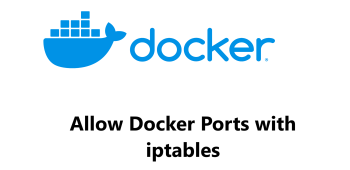Containers are playing an important role in the IT field for various purposes like deploying applications. Such containers being a standard unit of software contains the required dependencies and the code for the smooth running from one computing environment to another.
You can see many advanced and well known containers. Some of the important container technologies are Linux containers (LXC, LXD) and Docker containers, Kubernetes containers. These containers are used widely by related IT professionals.
Here at Ibmi Media, as part of our Server Management Services, we regularly help our Customers to perform related Docker Containers queries.
In this context, we shall look into some of the containers like Linux containers and Docker containers and the difference between them.
What are LXC Containers ?
LXC containers is an operating system, user space interface for the Linux Kernel which is generally used for creating various Linux systems such as Ubuntu, Arch, Centos, etc. You can also create lxc containers for the selected service or an application which uses the same underlying hardware resources and kernel shared to those containers.
As lxc containers share those underlying resources among all the containers involved but each container is configured with it's own network configurations and ip which can be changed for each container.
If you want to deploy a Linux server using a Linux operating system like Debian then setting up such containers is easy and can be treated and run the command just by accessing that specific container containing the OS.
Why use LXC containers ?
- LXC containers contains and provides the ability of the kernel.
- It is compact with the Control groups (Cgroups).
- Userspace interface for the Linux kernel.
What are LXD Containers ?
LXD containers are the advancement to the LXC containers. LXD containers also known as the next generation system container manager. LXD containers are composed of a daemon named lxd, command line interface – lxc and OpenStack Plugin. The LXC software library- libxlc is being connected by LXD through a REST API. As a result, it is the one to provide more flexibility and improvement to the LXC.
Using these LXD containers, one can install LXD on Linux servers such as Ubuntu then run LXD and start other servers like Debian, Ubuntu, Centos, Arch, etc very smoothly. Such containers are also running on the same underlying hardware resources and kernel shared to those containers.
Why use LXD containers ?
- LXD containers Uses LXC software library -libxlc to be connected by LXD through a REST API.
- Enhancement and provide flexibility to LXC.
- Next generation system container manager.
What are DOCKER Containers ?
Dockers are mainly known for its features as lightweight, fast and can be easily configured. It used to communicate with the kernel using LXC technology as underlying but nowadays it has its own library known as libcontainer.
Docker provides virtualization with lightweight features by running the applications in isolation. It can also use the same underlying hardware resources and kernel as Linux containers. It can collect all the required dependencies and the applications and can be deployed on the virtual container running any Linux server.
Docker packs applications with a self contained file system where an app acts as a single process on a docker engine. So such application containers become much more lightweight and deployed easily.
Why use Docker containers ?
- Docker has very independent containers.
- Docker consists of Lightweight containers.
- Docker can be deployed at a short time and can be easily configured.
- A very useful library known as libcontainer.
What are the Differences between LXC, LXD and DOCKER Containers ?
Some of the major differences between LXC, LXD and DOCKER Containers are mentioned below with some points:
- Linux servers such as Ubunut, Debian, Centos are only supported by LXC and LXD but docker is dependent on the platforms.
- LXD uses the LXC technology to communicate with the kernel but docker uses its own library libcontainer.
- LXC and LXD provide virtualization with a full OS system but Docker can provide virtualization of a single application.
- LXC and LXD are more dependent on the features of the OS for storage and networking than docker.
- Data cannot be retrieved using LXC containers technology but it is possible on docker containers.
- Docker packs applications with a self contained file system where an app acts as a single process on a docker engine. So containers become lightweight and deployed easily but linux containers are comparatively more time and storage consuming.
- The filesystem is implemented on Linux containers while docker does not have such a filesystem.
- LXC and LXD containers generally consist of all the packages required for the OS to run but Docker can collect and install only required dependencies for the single application to run.
- Linux provides all the required features for the OS to run so it does not need any cloud storage for that purpose but docker consists of cloud storage like docker hub.
- Network configurations and setting up the ip can be done easily on LXC and LXD containers but not with docker.
[Need assistance in fixing Docker container issues ? We can help you. ]
Conclusion
This article covers the differences between Docker containers, LXD, and LXC. In fact, You can use any of these containers as per your working environment and the requirements as each container technology has its own advantage and the limitations.
This article covers the differences between Docker containers, LXD, and LXC. In fact, You can use any of these containers as per your working environment and the requirements as each container technology has its own advantage and the limitations.











